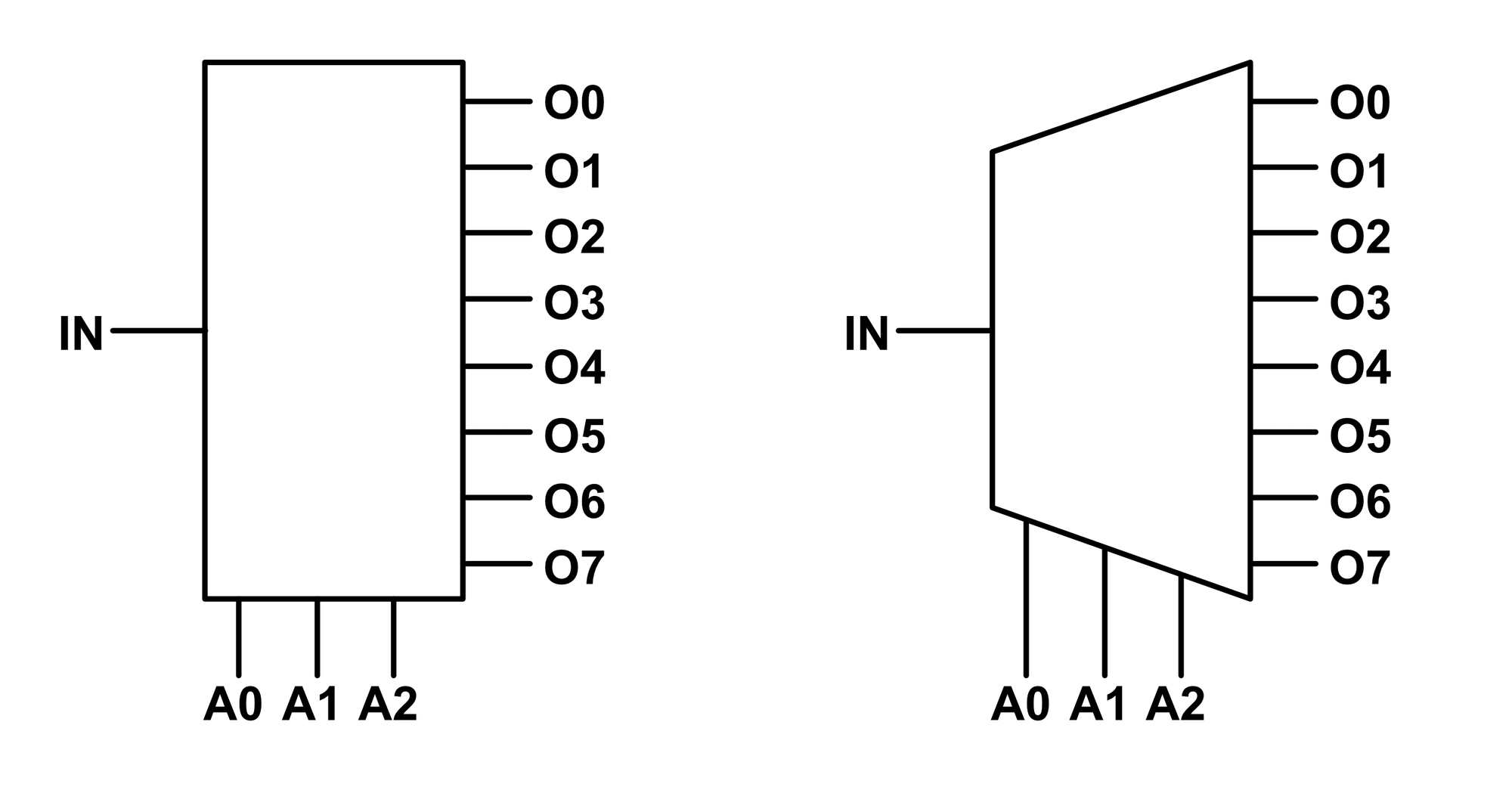Demultiplexers
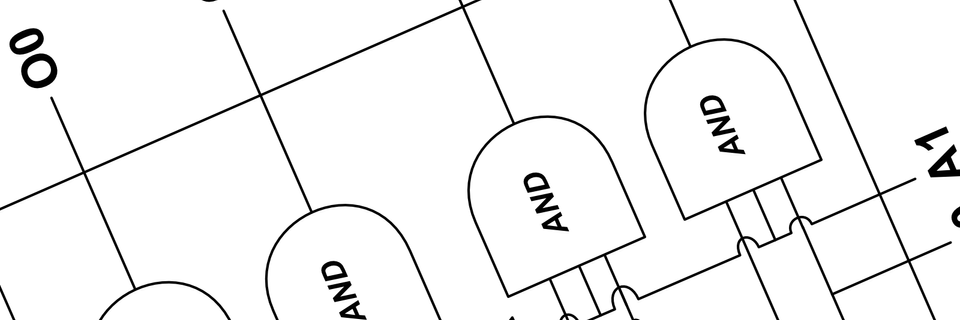
Prerequisites Required- Multiplexers
Multiplexers allowed us to select and output one signal from a group. A Demultiplexer allows us to take an input signal and send it to a selected output signal. The exact opposite of of a multiplexer.
Suppose we have a signal $IN$, two possible output paths $O0$ and $O1$, an address $A0$, and want to choose which channel the input should be connected to. This is made possible with the demultiplexer, or DEMUX, shown below:
| A0 | Selected Output |
|---|---|
| 0 | O0 |
| 1 | O1 |
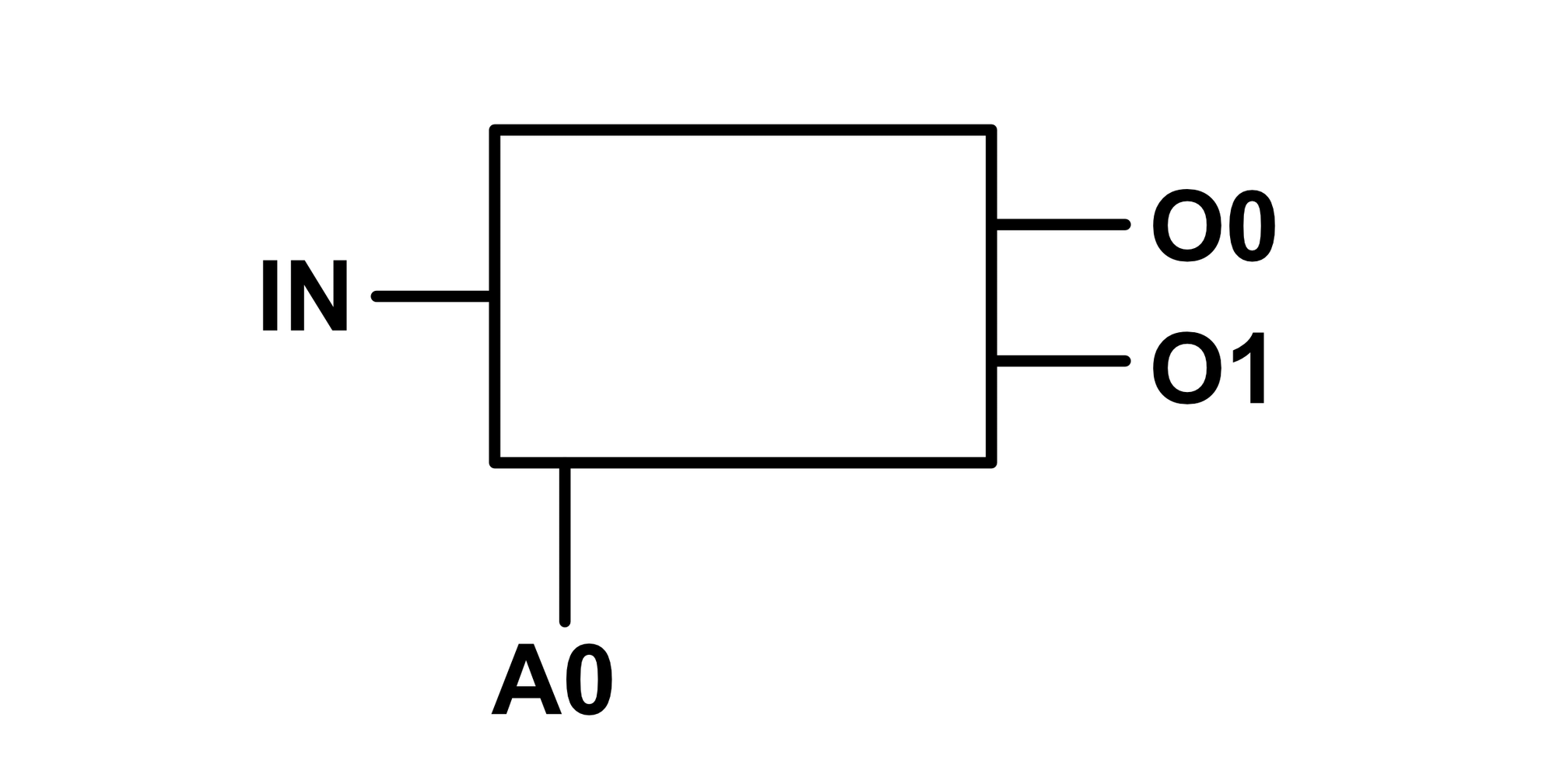
The input $A0$ is the address. When $A0$ is logic low ($0$), the signal $IN$ is forwarded to the output $O0$. When $A0$ is logic high ($1$), the signal $IN$ is forwarded to the output $O1$.
Like many digital logic devices, a demultiplexer can be created from logic gates, as shown in the below diagram:
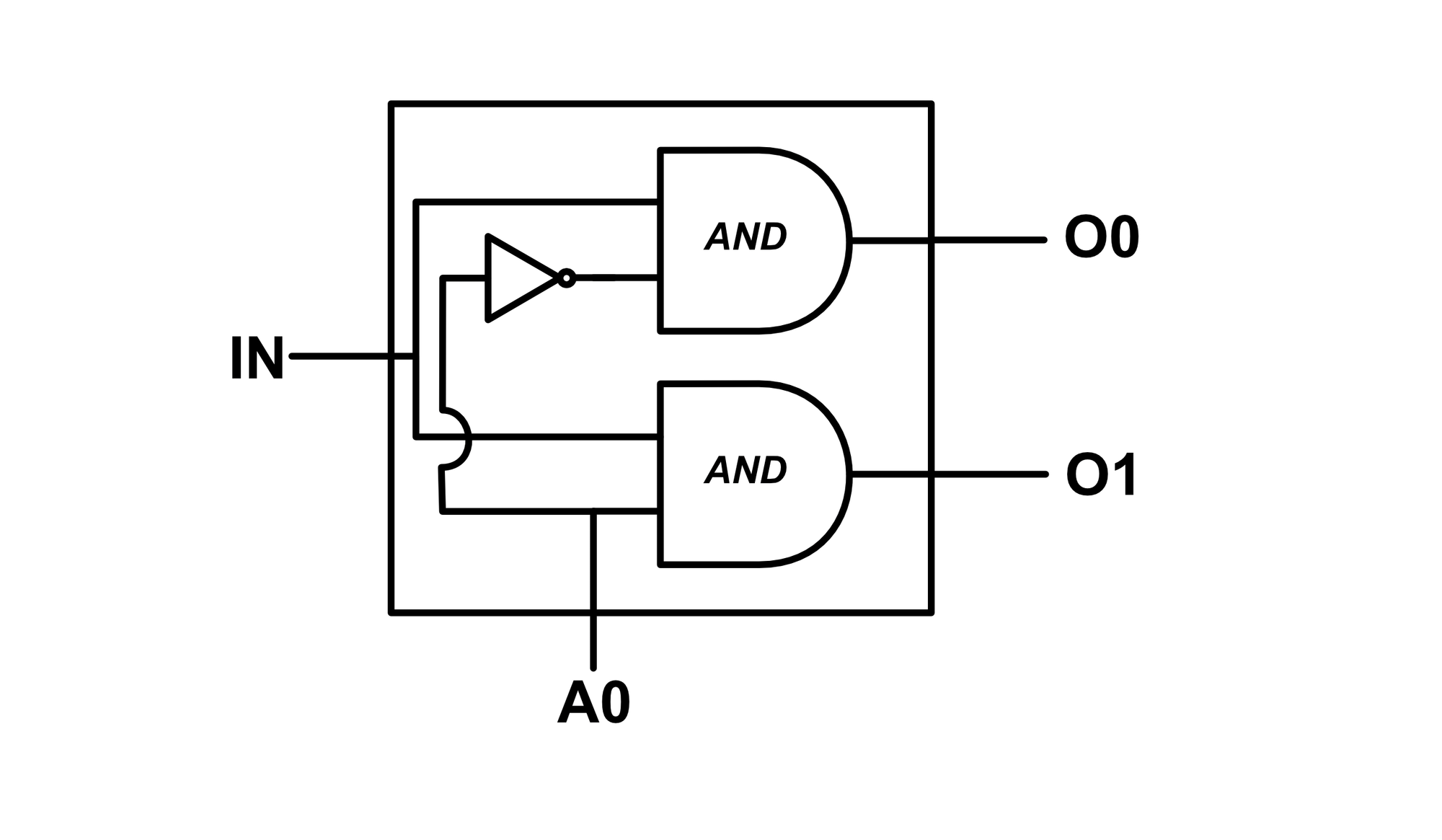
Like all devices made from gates, we could also diagram the demultiplexer using raw switches, though for the sake of brevity, we won't do so here. To actually build a hardware demultiplexer, one could use either gates or switches.
Note that in the case where $A0$ is low and $IN$ is output on $O0$, we don't just leave $O1$ floating and disconnected. Instead, it is perpetually at logic low ($0$) until $A1$ is set to logic high ($1$) which would cause $IN$ to be output on $O1$ (where it might be either a $0$ or a $1$ depending on what $IN$ is).
Four Channel Demultiplexer
The four channel demultiplexer is identical in function to the two channel demultiplexer, except it has four output channels instead of two and two address lines instead of one. This is represented by the below table and diagram:
| A0 | A1 | Selected Output |
|---|---|---|
| 0 | 0 | D0 |
| 0 | 1 | D1 |
| 1 | 0 | D2 |
| 1 | 1 | D3 |
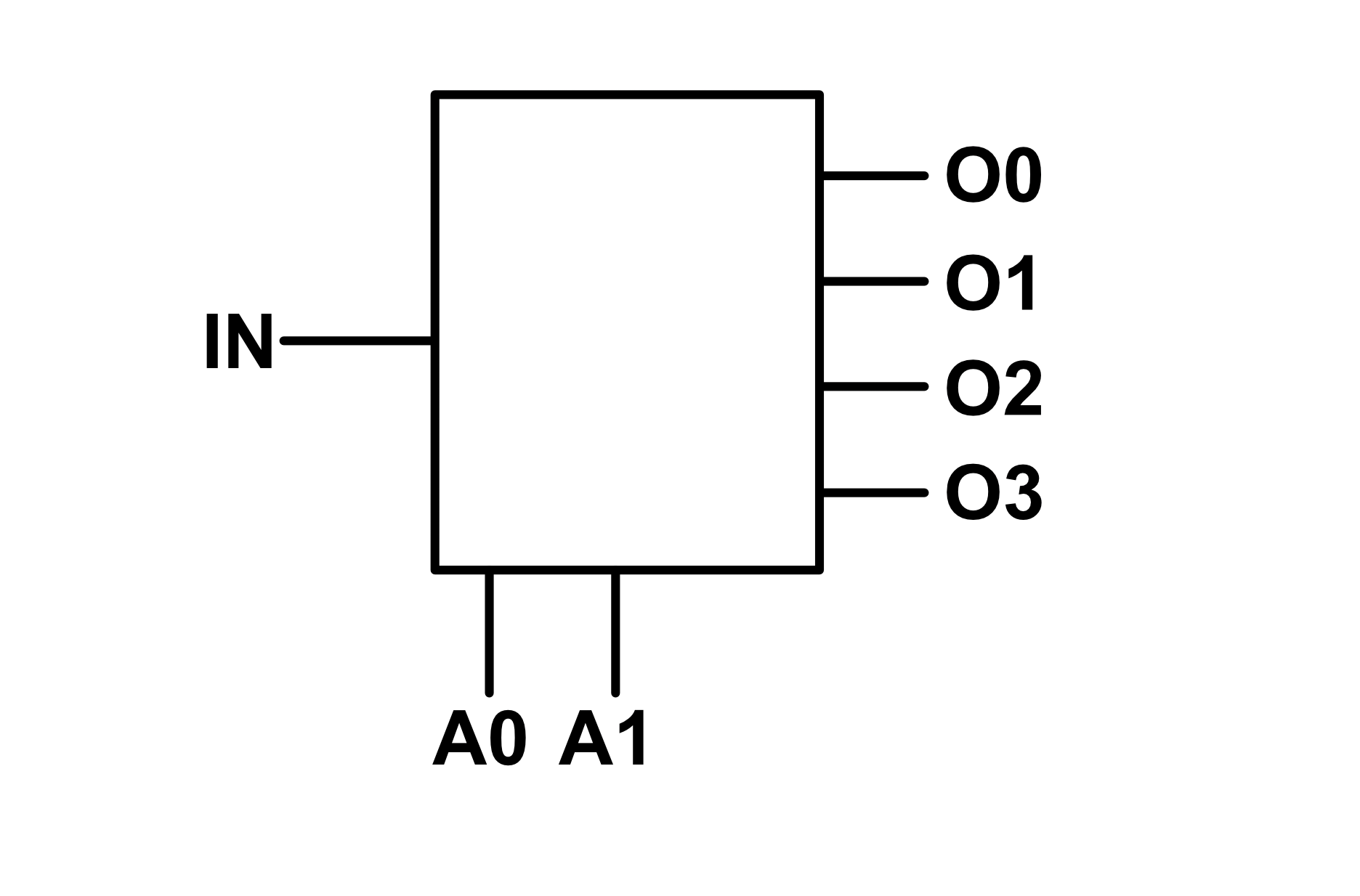
Like the two channel demultiplexer, the four channel demultiplexer can also be made from gates:
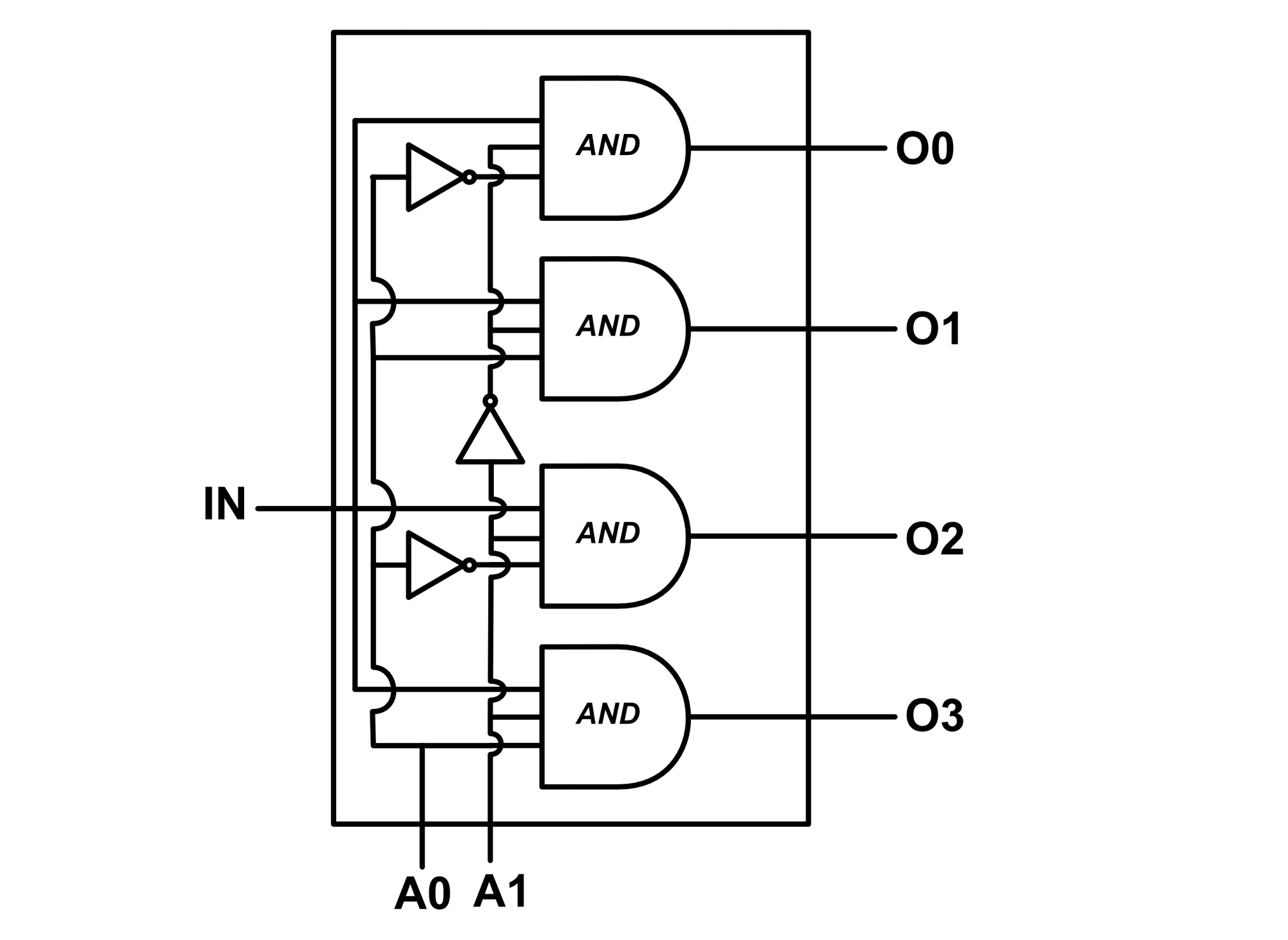
Higher Channel Demultiplexer
We've demonstrated 2 and 4 channel demultiplexers. Extending the fundamentals to create larger demultiplexers is not difficult, just more gates are required.
Demultiplexer Symbols
The demultiplexer is typically symbolized using either a box or a trapezoid (oriented with the outputs emitting from the larger side).
